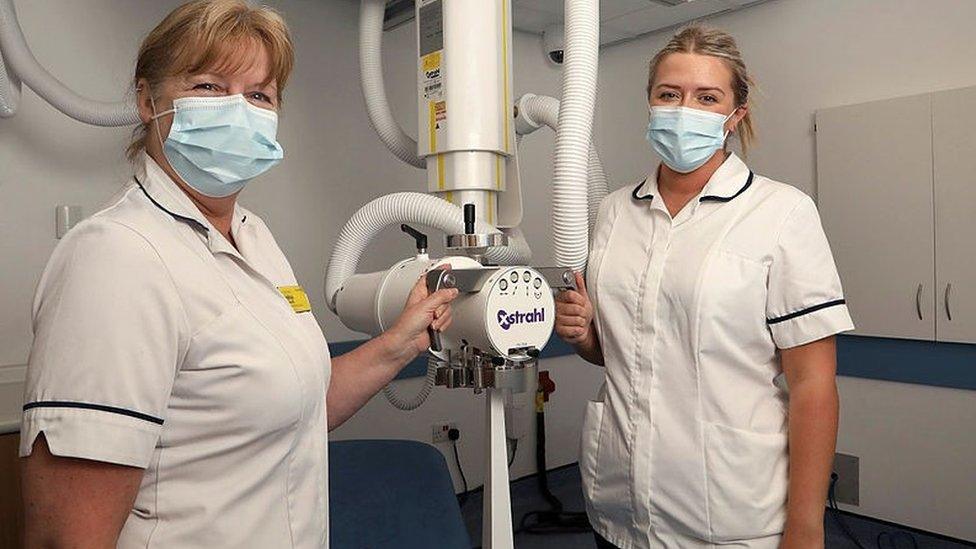Wolverhampton hospital 'not honest' about stroke death inquiry
- Published
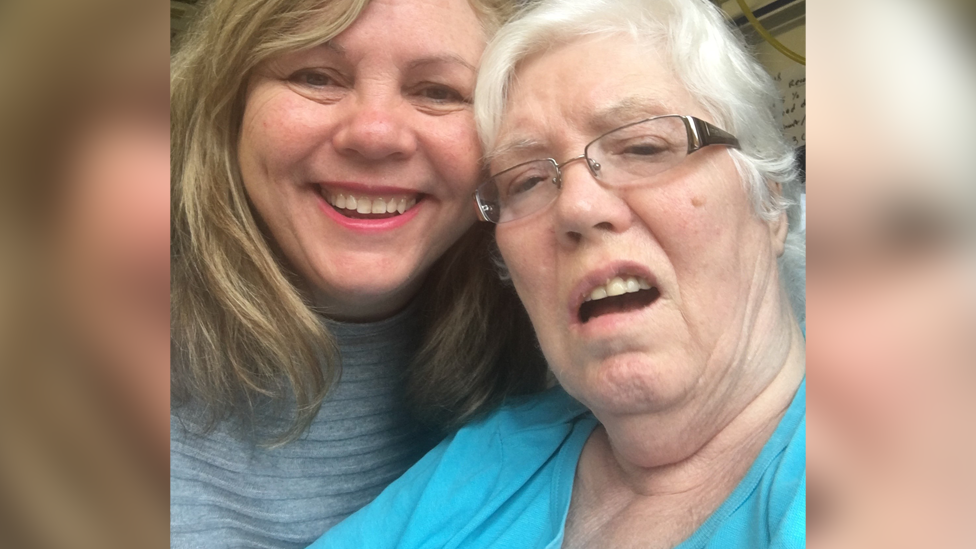
Jane O'Connor's mother Ann Cotterill died in February 2018, three months after her stroke
A hospital trust failed to be open and honest with a woman whose mother died following a stroke, an ombudsman found.
It seemed to be only Jane O'Connor's "persistence" that led to her learning the truth about her care, the health service ombudsman said.
Mrs O'Connor told her mother she would "fight every step of the way" to ensure what happened to her could not be repeated.
The trust has apologised for problems in its complaints process.
It has also paid her £750 compensation.
Two months after her mother Ann Cotterill suffered a "catastrophic" stroke in November 2017 Mrs O'Connor discovered she was also being treated for atrial fibrillation - an associated condition that affects the heart.
A nurse herself, Mrs O'Connor said she questioned why blood-thinning medication was not already being given, due to the increased risk of atrial fibrillation patients developing a stroke, external.
"I'd asked questions about why mum had a stroke and people told me they didn't know, but they did know," she said.
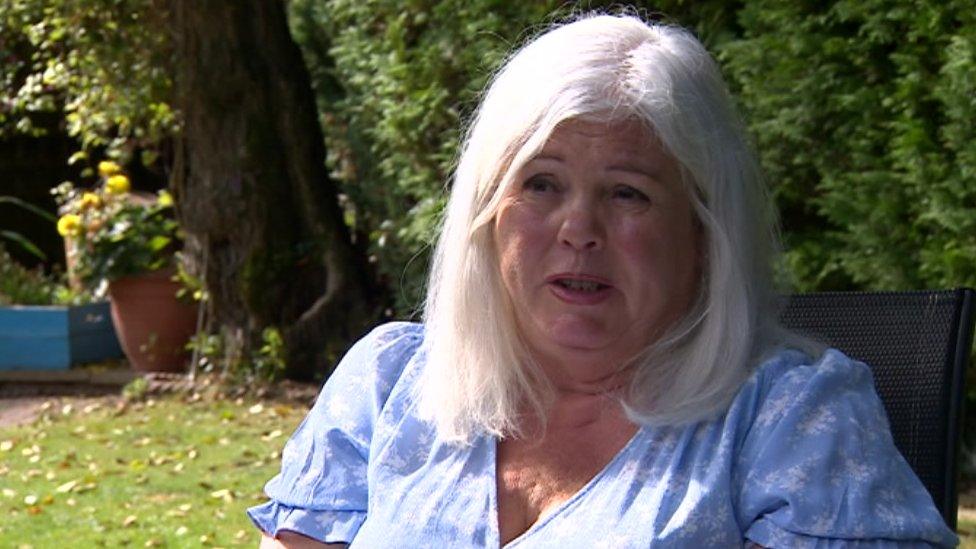
Jane O'Connor said the fight for her mum has been "huge"
An independent review commissioned by the trust would eventually find it was possible the atrial fibrillation caused the stroke and therefore possible blood-thinning medicines could have prevented it, the ombudsman's report said.
However, reaching this conclusion took months of complaints punctuated by what the watchdog described as a lack of honesty and openness on the part of the trust.
Mrs O'Connor is now taking legal action against the trust over her mother's care. The ombudsman's report only directly deals with the trust's failures in handling her complaint.
Having seen her mother being treated for atrial fibrillation and questioning the lack of blood-thinning medication, Mrs O'Connor lodged an official complaint with the hospital trust in January 2018.
The trust completed an initial investigation in March 2018, the ombudsman said, a month after her mother had died aged 76.
However, that concluded there was no clear link between Mrs Cotterill's episodes of atrial fibrillation and her stroke.
In fact the trust missed two chances to treat the atrial fibrillation itself, the ombudsman said.
After being fitted with a heart monitor, episodes in January and September 2017 were only picked up in October, although an email containing the data was missed by the cardiologist and therefore no action was taken.
The ombudsman's report also highlighted an email from a cardiologist apologising for not prescribing blood-thinning drugs for Mrs Cotterill's atrial fibrillation, but this fact was neither included in the trust's investigation nor provided to Mrs O'Connor.
She finally discovered it months later, following a Freedom of Information request.
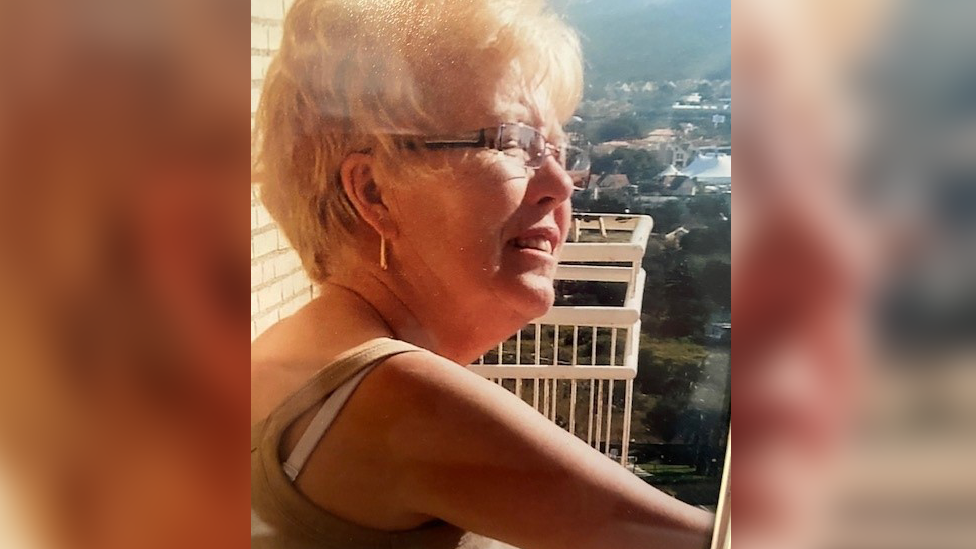
Ann suffered an episode of atrial fibrillation in hospital in 2016 and later had a heart monitor fitted
Despite not being spoken to by the trust's investigation team, an oversight criticised by the ombudsman, she secured a lengthy meeting with those involved in August 2018.
The ombudsman said very little detail of that meeting was on record, due to a recording device failing after just four minutes.
However, unwilling to accept what she had heard, Mrs O'Connor continued to write letters of complaint, including to trust chief executive David Loughton.
Her MP also contacted the trust, but was simply told it had carried out an investigation.
She attended a meeting of the Wolverhampton Clinical Commissioning Group board in November 2018 and spoke in public demanding answers.
It was only following these interventions, the ombudsman said, that the trust sought an independent review of the circumstances.
'Not open or honest'
In December 2018 it appointed an independent cardiologist, who concluded it was possible the atrial fibrillation caused the stroke.
The ombudsman determined the trust had known this from January 2018, when Mrs O'Connor had made the complaint, but had not acted upon it.
It said the trust did "not appear to have been clear, accurate, open or honest as it could and should have been".
The ombudsman also believes the trust should have opened a serious incident investigation in January 2018 and that failure to do so was "maladministration".
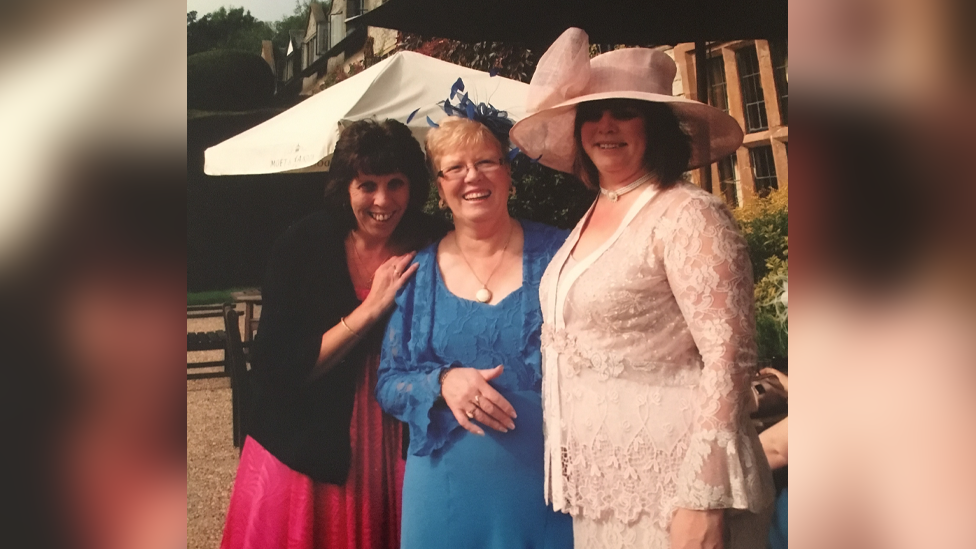
It was only the persistence of Mrs O'Connor (right) that led the trust to carry out an independent review, the ombudsman said
It was not until March 2019 that Mrs Cotterill's death was eventually considered a serious incident by the trust.
Mrs O'Connor said she was "fortunate" she was "strong enough" to fight "at a time when my thought process should have been all about mum and grieving for our loss of her".
"It comes with a cost to me, to my wider family, because they have had to sit and watch me do all of this and I have trawled through mountains of paperwork and emails and medical notes to get where I am today for mom," she said.
"There is no need for them to be so resistive, why couldn't they just be honest?
"The duty of candour is on the trust to be open and honest with me and at no point were they, unless I dragged it out of them, so it has been a very difficult journey."
Mrs O'Connor said she was "very concerned" that her mother's case was not a "one off" as well as questioning the time it had taken for her case to be resolved.
In a statement, the hospital trust said it had made several changes to improve "service users' experience", including "additional training, weekly high-level reviews of grievances and incidents and complaint handling training commissioned through the ombudsman's office".
It said it was unable to comment further, due to the ongoing clinical negligence claim.

Follow BBC West Midlands on Facebook, external, Twitter, external and Instagram, external. Send your story ideas to: newsonline.westmidlands@bbc.co.uk, external
Related topics
- Published3 August 2022

- Published7 June 2022
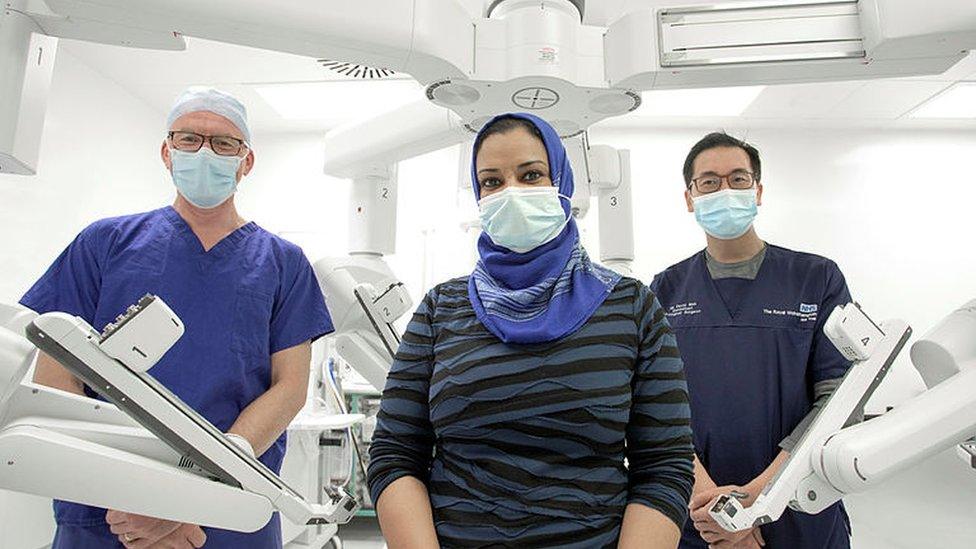
- Published1 May 2022
